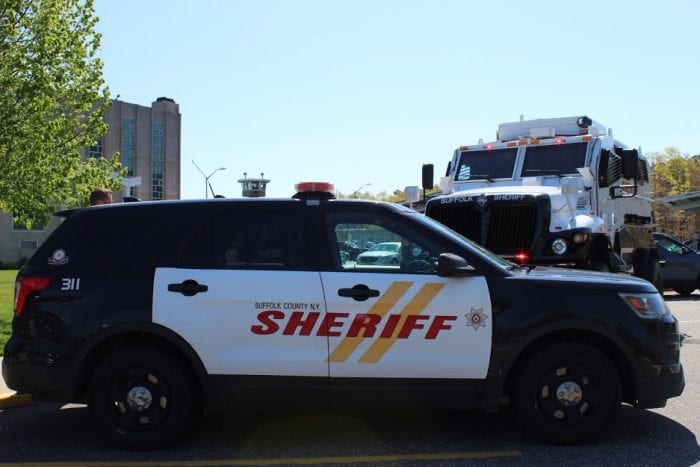NYS Thanksgiving Limitations To Be Enforced by SCPD, Not Sheriff’s Office

Last week, the Suffolk County Sheriff’s Department posted to its Facebook page that it would not be participating in the enforcement of limitations of Thanksgiving gatherings.
The responsibility to enforce the executive order that took effect Nov. 13 in New York state, limiting private gatherings to 10 people or less to help curb the increase of coronavirus infections, will fall on the Suffolk County and East End police departments this holiday. While many commented on the Facebook post that they were thankful to hear of the sheriff’s decision, others felt the department has an obligation to enforce the state’s rules.
Despite nonenforcement on the sheriff’s department’s part, Suffolk County Sheriff Errol Toulon Jr. (D) said in an email that it has been the department’s policy to encourage responsible behavior since the beginning of the pandemic.
“We do that here at the correctional facility in Suffolk County by enforcing mask wearing and social distancing, and advise staff to stay home if they are ill or have come in contact with someone with COVID-19,” he said. “I strongly urge our residents here to do the same. Do not put yourselves or your families at risk.”
Toulon added that law enforcement and military members, as well as other professionals, “sacrifice time with their families during holidays and our residents need to make responsible decisions.”
Several sheriffs’ offices and elected officials across the state have announced they are not enforcing the executive order or have said it’s difficult to enforce. Gov. Andrew Cuomo (D) addressed the problem of enforcing the 10-person rule at his Nov. 23 media briefing, saying he didn’t understand how they were choosing not to enforce the law.
“I believe that law enforcement officer violates his or her constitutional duty,” Cuomo said, adding the officers don’t have the right to choose what laws they enforce. As an example, he presented the scenario of what would happen if officers decided they didn’t think cocaine should be illegal.
Cuomo added even though many residents believe they can’t be told what to do in their own houses, laws apply both outside and inside of homes such as domestic and drug laws.
“I’m telling you that you are responsible for your actions and here are the numbers, and the numbers don’t lie and this is the increase before any other increase from Thanksgiving, and if you increase social activity then you’re going to see the number go further up,” the governor said.
According to a statement from the New York State Sheriffs’ Association, sheriffs from across the state have responded to thousands of violation complaints since the first COVID-19 orders were issued and have been doing what they can to address the complaints.
“The criminal laws have very limited applicability with respect to those complaints, and in most cases use of the criminal laws would be unwise,” the statement read.
The statement went on to say that most residents have been following the health directives regarding the coronavirus, and the executive order which limits nonessential private residential gatherings to 10 people or less “has caused great consternation among many of our citizens, who envision armed officers arriving at their doors to count the number of people around the Thanksgiving table.” The association said it would also be difficult to determine how many people in a household are guests, and whether or not a gathering is essential or nonessential without violating a citizen’s right to privacy.
“Many sheriffs and other law enforcement leaders have felt compelled to allay those concerns by assuring citizens that officers will not be randomly coming to their homes on Thanksgiving Day to count the number of people inside,” the statement read. “That would be neither practical nor constitutional.”





